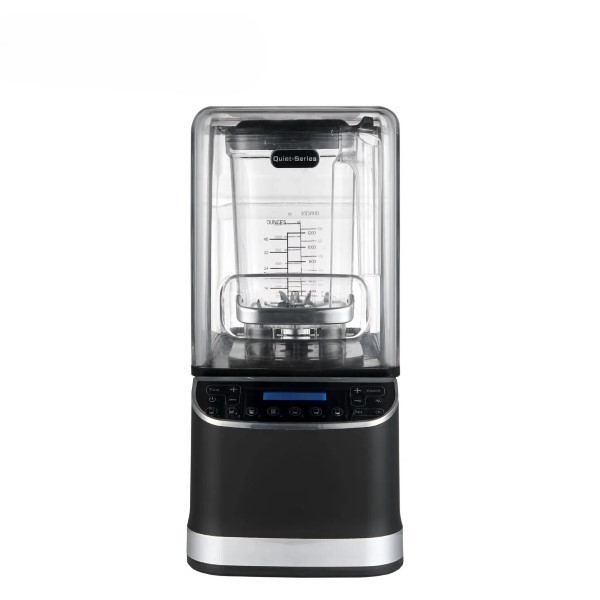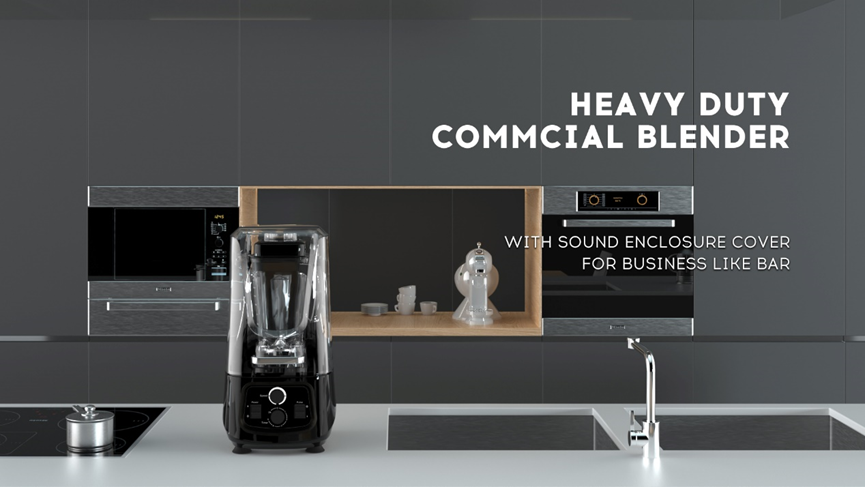Why a Sound Enclosure is Essential for Your Commercial Blender
release time:
2025-05-27
Why a Sound Enclosure is Essential for Your Commercial Blender
Understanding the Need for Sound Enclosures in Commercial Blenders
In the bustling environment of a commercial kitchen, blenders play a pivotal role in food preparation. However, they can also be one of the loudest pieces of equipment, creating noise levels that can disrupt communication and create an uncomfortable atmosphere. This is where **sound enclosures** come into play.
A sound enclosure is a dedicated structure designed to contain and reduce the noise generated by equipment like commercial blenders. This article delves into the reasons why investing in a sound enclosure is essential for your business, focusing on its benefits, features, and practical considerations.
The Top Benefits of Using Sound Enclosures
1. Enhanced Employee Comfort and Productivity
One of the primary advantages of sound enclosures is the improved comfort of your employees. High noise levels can lead to fatigue, distraction, and decreased productivity. By minimizing noise, sound enclosures create a more pleasant working environment, allowing staff to focus better on their tasks.
2. Improved Customer Experience
In establishments such as cafes and restaurants, the ambiance plays a significant role in customer satisfaction. Loud blenders can detract from the overall dining experience. Installing a sound enclosure helps maintain a peaceful atmosphere, allowing customers to enjoy their meals and conversations without unnecessary interruptions.
3. Compliance with Noise Regulation Standards
Many regions have regulations regarding noise levels in commercial spaces to ensure a safe and pleasant environment for both employees and customers. Sound enclosures help businesses comply with these regulations, avoiding potential fines and complaints from nearby residents.
4. Protection of Equipment
Sound enclosures not only reduce noise but also protect your equipment from dust, debris, and other environmental factors that can cause wear and tear. This added layer of protection can extend the lifespan of your commercial blender, providing better value for your investment.
5. Energy Efficiency
In addition to noise reduction, sound enclosures often incorporate insulation that can enhance energy efficiency. By maintaining a stable temperature within the enclosure, they help reduce the workload on your blender, leading to lower energy consumption and operational costs.
Key Features to Look for in a Sound Enclosure
When selecting a sound enclosure for your commercial blender, it’s crucial to consider various features that will ensure optimal performance.
1. Acoustic Materials
The effectiveness of a sound enclosure largely depends on the materials used in its construction. Look for enclosures made from high-density acoustic panels that absorb sound effectively. The thickness and density of these materials will significantly influence their soundproofing capabilities.
2. Ventilation Systems
While sound reduction is essential, proper ventilation is also crucial to prevent overheating. Opt for enclosures with built-in ventilation systems that allow for adequate airflow without compromising sound insulation.
3. Ease of Access
A good sound enclosure should provide easy access for maintenance and operation. Features such as removable panels or doors can facilitate this access, ensuring that you can perform routine maintenance without hassle.
4. Customizability
Every commercial kitchen has unique space requirements. Look for sound enclosures that can be customized to fit your specific needs, ensuring an optimal fit that maximizes both sound reduction and space usage.
5. Portability
In some cases, you might need to relocate your blender or sound enclosure. Consider options that are portable or modular, allowing for easy rearrangement as your kitchen layout changes.
Installation Process: How to Set Up Your Sound Enclosure
Installing a sound enclosure may seem daunting, but with the right approach, it can be a straightforward process. Here’s a step-by-step guide to help you through the installation.
1. Measure the Space
Begin by measuring the area where you intend to install the sound enclosure. Take into account the dimensions of your commercial blender and any additional equipment that may need to fit within the enclosure.
2. Choose the Right Location
Select a location that minimizes disruption to workflow while maximizing the effectiveness of sound reduction. Ideally, the sound enclosure should be positioned away from high-traffic areas.
3. Assemble the Enclosure
Follow the manufacturer’s instructions to assemble your sound enclosure. Ensure that all panels are securely attached and that any ventilation systems are correctly installed to allow for airflow.
4. Test for Noise Levels
Once installed, test the enclosure to assess its effectiveness in reducing noise levels. Use a sound level meter to measure noise before and after installation, ensuring that the enclosure meets your noise reduction goals.
5. Regular Maintenance
To ensure long-term effectiveness, schedule regular maintenance for your sound enclosure. This includes checking for any wear and tear, ensuring proper ventilation, and cleaning any accumulated dust or debris.
Cost Considerations: Is a Sound Enclosure Worth the Investment?
When evaluating whether to invest in a sound enclosure, it’s essential to consider the associated costs against the potential benefits.
1. Initial Investment
The initial cost of a sound enclosure can vary significantly based on its size, materials, and features. While it may seem like a considerable expense upfront, the long-term benefits can justify the investment.
2. Potential Savings
By reducing noise-related distractions, sound enclosures can lead to increased employee productivity, which translates to higher output and more significant profits. Additionally, the durability offered by sound enclosures can lead to savings on equipment repairs and replacements.
3. Improved Customer Retention
A more pleasant dining environment can enhance customer satisfaction and retention. Happy customers are more likely to return, ultimately benefiting your bottom line.
Frequently Asked Questions (FAQs)
1. How much noise can a sound enclosure reduce?
The level of noise reduction depends on the materials used and the design of the enclosure. Generally, a well-designed sound enclosure can reduce noise levels by 10 to 30 decibels.
2. Can I install a sound enclosure myself?
While some sound enclosures are designed for DIY installation, it’s advisable to consult a professional for more complex setups to ensure optimal performance.
3. How do I maintain my sound enclosure?
Regularly check for any signs of damage, clean the surfaces to remove dust, and ensure that ventilation systems are functioning correctly.
4. Are sound enclosures customizable?
Many manufacturers offer customizable options to fit your specific needs and kitchen layout, ensuring the best fit for your commercial blender.
5. What types of businesses can benefit from sound enclosures?
Any business that utilizes commercial blenders, such as restaurants, cafes, smoothie bars, and catering services, can benefit from sound enclosures.
Conclusion
In a commercial kitchen, the noise produced by blenders can be a significant issue that affects employee comfort, customer experience, and compliance with noise regulations. Investing in a sound enclosure is not just about reducing noise; it’s about creating a more productive, enjoyable, and efficient working environment. By considering the features, installation process, and cost implications discussed in this article, you can make an informed choice that benefits your business in the long term. Embrace the advantages of sound enclosures and transform your commercial kitchen into a quieter, more conducive space for both your staff and customers.
More information






